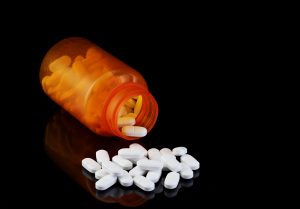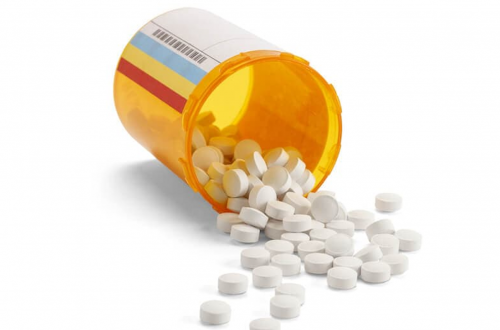Recovering from addiction is a life-long journey. Despite having been given the utmost care in a rehab facility, there is no guarantee that one becomes free from tendencies to relapse right after treatment.
Although several options can be done to prevent this, it still strongly matters to take advantage of the time spent during treatment to build a strong foundation of skills that can cope with addiction.
A scientific study has proven how it takes 90 days of sobriety for the brain to recover from the strain of addiction. This is a phase where it slowly restructures its normal functions such as the ability to make sound decisions as well as to think straight.
This can greatly support the notion that a 90-day treatment plan poses more significant results than the short-term ones, specifically the 30 and 60-day treatments. However, there are still many factors to weigh in to make a treatment plan work for one’s condition.
In the case of Vicodin addiction, the duration of treatment is unique to every person. Some progress slowly, some encounter complications, while others can get by through time. Personal disposition still plays a great role in determining how long treatment can last.
Timeline for Vicodin Addiction Treatment
 Patients go through two phases in their Vicodin addiction treatment plan. These are detox and rehabilitation.
Patients go through two phases in their Vicodin addiction treatment plan. These are detox and rehabilitation.
When there is already a physical dependence on Vicodin, withdrawal symptoms will follow as soon as the usual dose is missed. With a half life of four, short-acting Vicodin can pose withdrawal symptoms eight hours after the last dose.
The first two weeks of treatment are detox.
It takes at least a week and up to two weeks for the withdrawal symptoms to last. Cases of post-acute withdrawal may go on for at least a year, and this can be managed by taking maintenance medications within that period as well.
Psychological withdrawal symptoms may not really subside immediately within the two-week timeframe. It is still very likely for patients to experience occasions of mood swings. Even anxiety and depression may continue to persist.
However, when medications are included in the detox plan, withdrawal does not have to be extremely painful. Since detox treatment aims to stabilize the physical disposition of the patient to be ready for further treatment, medications are essential in the process.
As soon as the patient is relieved from intense withdrawal pain, then it is best to take a step toward the next phase. This is the rehabilitation part which includes counseling and therapy programs (one-to-one and group sessions).
The main objective of these sessions is to help an individual cope with what triggers their Vicodin addiction, and the key to achieving this is to take a deep look at oneself within. Therapists help patients identify their triggers and build skills to get past them.
Group sessions include meaningful discussions about personal experiences with Vicodin addiction. Aside from meeting new friends, this fellowship can be a source of support as well as a meaningful guide in understanding addiction and recovery from different perspectives.
There are three options that a patient may choose in considering the length of their treatment plan. This matters because the longer the treatment, the more it costs one their time and money.
Rehabilitation must last for at least 30 days.
 This is the main requirement among treatment facilities. This length is a good start for individuals who are still uncertain about how further they should take their treatment.
This is the main requirement among treatment facilities. This length is a good start for individuals who are still uncertain about how further they should take their treatment.
Some individuals choose this option especially when they have the intention to shift from inpatient to outpatient care later on. This is an ideal path for this case since it can save a lot of costs.
Most experts believe that patients who take the short-term treatment plan are more prone to relapse in the long run. If the cost is the major concern in choosing this plan, it may be helpful to consider financing options to experience the best treatment regardless of the cost.
Rehabilitation may continue for up to 60 days.
The cost is not just the only factor that opts a person to choose a short-term plan. Some individuals may not find it appealing to commit to longer treatments so this two-month-long rehab may be the best choice.
It can be common for co-occurring disorders to be identified during this duration of treatment. If this is the case, extending it must be highly considered as soon as the 60 days are completed. Transitioning from inpatient to outpatient, later on, can still work for this plan.
Many rehab facilities offer this duration of treatment. There are more significant outcomes shown by this length compared to the month-long treatment which is why most patients find this type of care highly appealing.
The most ideal duration for rehabilitation is 90 days.
 Some rehabilitations extend up to 120 days, but this 90-day treatment plan is by far the most recommended by experts. As mentioned previously, abstaining from the use of Vicodin for 90 days gives the brain enough time to shape back to normal function.
Some rehabilitations extend up to 120 days, but this 90-day treatment plan is by far the most recommended by experts. As mentioned previously, abstaining from the use of Vicodin for 90 days gives the brain enough time to shape back to normal function.
While most people emphasize that once addiction affects the brain, it cannot be expected to completely return to its best form. However, patients can experience significant improvements in their lifestyle once they get past their 90-day treatment.
This 90-day duration is greatly ideal for a person to form new habits to keep themselves sober. It is also enough time to build a strong personal foundation in overcoming the triggers of addiction.
Overall, the duration of addiction treatment for Vicodin could be one of the major factors that can impact the effectiveness of one’s recovery, however; a strong commitment by the person to apply the things learned in the rehab facility in their lifestyle is also an important factor. Without this, rehab treatment can just go to waste.
Aftercare programs are highly essential once rehab treatment is completed, and this can go on as long as the patient prefers. Cognitive behavioral therapy and counseling are important for preventing relapse and supporting your life-long sobriety.





